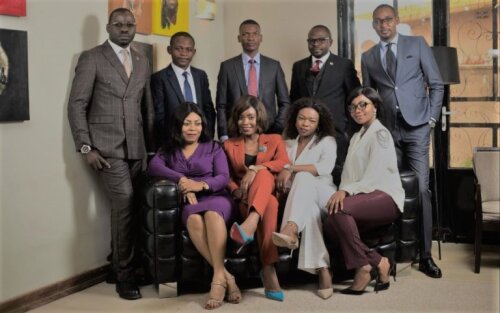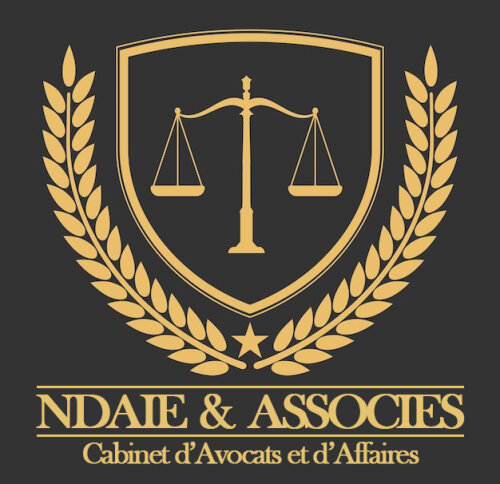Best Public-Private Partnerships (PPP) Lawyers in Lubumbashi
Share your needs with us, get contacted by law firms.
Free. Takes 2 min.
List of the best lawyers in Lubumbashi, DR Congo
About Public-Private Partnerships (PPP) Law in Lubumbashi, DR Congo
Public-Private Partnerships, commonly known as PPPs, are collaborative agreements between government entities and private sector companies for the delivery of public projects or services. In Lubumbashi, the second largest city of the Democratic Republic of Congo (DR Congo), PPPs often focus on critical sectors such as infrastructure, energy, health, water, sanitation, and urban development. These agreements allow the government to leverage private sector finance, innovation, and expertise while aiming to enhance public service delivery and spur economic growth. In recent years, Lubumbashi and wider Katanga Province have seen an expanding interest in PPPs as a way to address infrastructure gaps and drive development.
Why You May Need a Lawyer
Engaging in a PPP arrangement in Lubumbashi can be complex as it involves strict regulatory compliance, contract negotiations, and risk assessment. Common scenarios in which legal assistance is essential include:
- Reviewing and negotiating PPP contracts and ensuring fair risk allocation between the parties. - Securing licenses, permits, or regulatory approvals for project initiation. - Advising on land acquisition, property rights, and dealing with expropriation issues. - Ensuring compliance with procurement laws and anti-corruption regulations. - Structuring project financing and managing tax implications. - Resolving disputes arising from project implementation, payment, or funding. - Protecting intellectual property or proprietary technologies involved in the project.
Given the high value and complexity of PPP projects, retaining an experienced lawyer with knowledge of local laws is crucial to protect your interests and ensure project success.
Local Laws Overview
In Lubumbashi, Public-Private Partnerships are primarily governed by national legislation, especially Law No. 18/016 of 9 July 2018 relating to PPPs in the Democratic Republic of Congo. This law sets out the legal framework for the establishment, implementation, and monitoring of PPP projects. Key features of the local PPP regulatory landscape include:
- Clear definition of what constitutes a PPP, the types of eligible projects, and applicable sectors. - Procedures for initiating PPP projects, including the requirements for feasibility studies and socio-economic impact assessments. - Transparency and competitiveness in the selection of private partners, normally via public calls for tenders. - Mandatory risk assessment and risk sharing between public and private parties. - Legal requirements for contract contents, covering payment terms, performance indicators, asset transfers, and duration. - Specific provisions related to land acquisition, taxation, customs, and dispute resolution (often allowing arbitration). - Oversight by regulatory authorities or commissions that monitor contractual compliance and project performance.
Local administrative regulations may also impose additional requirements, especially in sectors like mining, transport, or health. It is important to consult applicable provincial or municipal rules in Lubumbashi, as these can affect permit acquisition and implementation.
Frequently Asked Questions
What is a Public-Private Partnership (PPP)?
A PPP is a contract between a public body and a private company to design, finance, build, operate, or maintain a public service or infrastructure, sharing risks and rewards.
Who can participate in PPP projects in Lubumbashi?
Private local or foreign companies, consortia, and sometimes NGOs can partner with government entities at national, provincial, or municipal levels in Lubumbashi.
What sectors are most commonly involved in PPPs?
In Lubumbashi, PPPs are seen in road construction, water supply, electricity generation, sanitation, hospitals, and urban development projects.
What is the standard process for establishing a PPP?
The process usually involves a public call for tenders, submission of proposals, legal and financial due diligence, contract negotiation, approval by relevant authorities, and project implementation.
What legal risks should investors be aware of?
Risks include regulatory changes, delays in permits, land disputes, payment defaults, political instability, and contract enforcement issues.
How are disputes resolved in PPP projects?
Most PPP contracts include clauses for dispute resolution, often favoring mediation or arbitration over court litigation, sometimes in international venues.
Are tax incentives available for PPP projects?
Certain PPP projects, especially those aligned with public priorities, may benefit from tax breaks or customs exemptions, as provided by local laws or negotiated in contracts.
How is project financing typically structured?
Financing can come from private sector capital, international lenders, development banks, government contributions, or combinations thereof. The structure depends on project size and sector.
What approvals are required before starting a PPP?
Projects need approvals from relevant ministries, local authorities, and regulatory bodies, covering feasibility, environmental compliance, construction permits, and sometimes parliamentary ratification.
Can foreign companies be involved in PPPs in Lubumbashi?
Yes, foreign companies may participate, subject to investment and sectoral regulations. They may need to establish a local presence or partner with Congolese firms.
Additional Resources
If you are seeking further information or support regarding PPPs in Lubumbashi, consider contacting:
- Ministry of Portfolio (Ministère du Portefeuille), the central body overseeing PPP agreements nationwide. - Provincial Government of Haut-Katanga, which manages local permits and authorizations for Lubumbashi. - Agence Nationale pour la Promotion des Investissements (ANAPI), a national agency providing guidance and support to investors. - Chambre de Commerce et d’Industrie du Katanga, for networking and local regulatory updates. - International Finance Corporation (IFC) or development agencies active in PPP capacity-building and project facilitation. - Reputable local law firms with PPP, infrastructure, and project finance expertise.
Next Steps
If you are considering entering into a Public-Private Partnership in Lubumbashi, here are recommended actions:
- Gather background information on the sector and existing PPP projects in the area. - Consult with an experienced local lawyer to evaluate legal risks and draft or review agreements. - Meet with government authorities or agencies responsible for PPP approvals. - Ensure all your corporate documents, authorizations, and financial plans comply with Congolese law. - Seek expert advice on permits, local content requirements, and regulatory compliance. - If you face a legal dispute or regulatory challenge, promptly contact a qualified law firm to protect your interests.
Early and comprehensive legal guidance can save significant time and investment, help you navigate complex regulations, and optimize your chances for a successful PPP project in Lubumbashi.
Lawzana helps you find the best lawyers and law firms in Lubumbashi through a curated and pre-screened list of qualified legal professionals. Our platform offers rankings and detailed profiles of attorneys and law firms, allowing you to compare based on practice areas, including Public-Private Partnerships (PPP), experience, and client feedback.
Each profile includes a description of the firm's areas of practice, client reviews, team members and partners, year of establishment, spoken languages, office locations, contact information, social media presence, and any published articles or resources. Most firms on our platform speak English and are experienced in both local and international legal matters.
Get a quote from top-rated law firms in Lubumbashi, DR Congo — quickly, securely, and without unnecessary hassle.
Disclaimer:
The information provided on this page is for general informational purposes only and does not constitute legal advice. While we strive to ensure the accuracy and relevance of the content, legal information may change over time, and interpretations of the law can vary. You should always consult with a qualified legal professional for advice specific to your situation.
We disclaim all liability for actions taken or not taken based on the content of this page. If you believe any information is incorrect or outdated, please contact us, and we will review and update it where appropriate.











